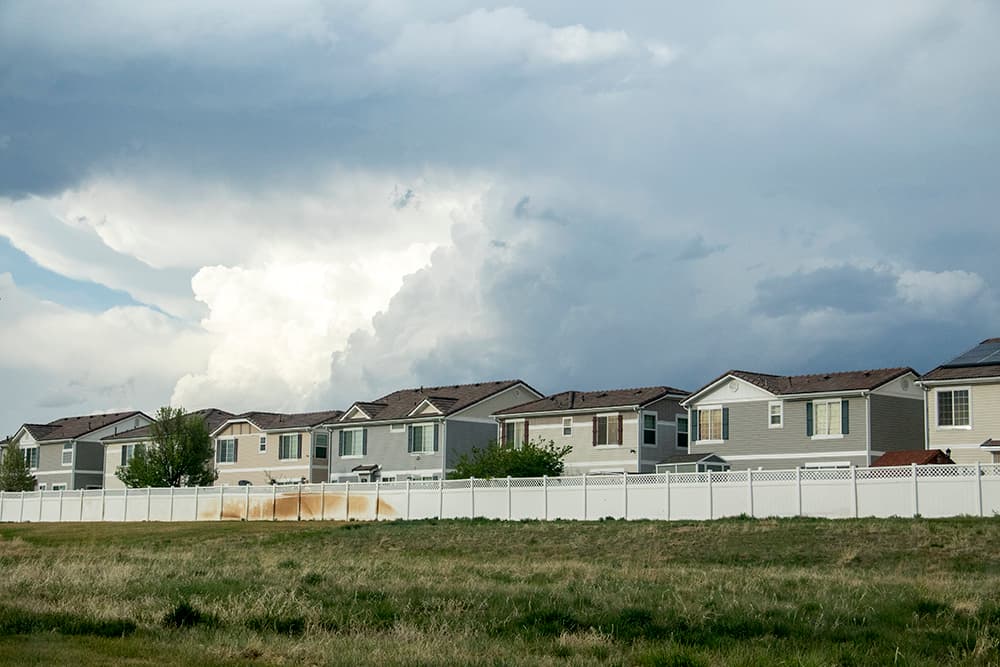Influential players in local and national housing are asking Denver to change how it's handling major problems in its affordable housing program.
The city believes that more than 300 homeowners may be violating the rules of a program that was meant to provide homes for people with limited incomes.
Scores of the homes may be occupied by people who did not qualify for the program, and some could have to sell their homes for limited prices. It's one of the largest problems of its type ever seen in U.S. affordable housing, as one expert told us.
Now, the board of the National Organization of African Americans in Housing is asking the city to bring in an outside party to ensure that the painful process ahead is handled correctly.
The suggestion is notable in part because the organization's director, Kevin Marchman, is the chair of Denver's Housing Advisory Committee and a former assistant secretary of U.S. Housing and Urban Development.
Separately, Councilwoman At-large Robin Kniech said on Wednesday that the city should consider broader changes to its affordable housing program, as did the advocacy group All In Denver in recent written comments to the city.
NOAAH expressed "immediate concerns about the city’s management of the income restricted homes in the communities of Green Valley Ranch, Stapleton and Montbello" in correspondence with the city, which was obtained by Denverite.
Marchman said that the problems in the housing program are particularly painful for the black and Latino communities who have migrated from central Denver out to its northeastern edge, where the affordability program is concentrated.
"I know these families. I don’t know all their names. But as we moved from Five Points to northeast Denver, and when Montbello and Green Valley opened up, people were looking for, 'This is where I’m going to retire. This is where I’m going to raise my kids," he said.
Here's what they're suggesting.
Marchman's group suggested that Mayor Michael Hancock appoint a "special administrator."
The administrator could operate independently and ensure the new compliance program "is executed with the integrity, transparency, expertise and dignity." A new administrator also could make sure residents get fast responses.
"I know the city is being earnest, but we have to respond quickly than a bureaucracy typically does. Period," he said in an interview.
Councilwoman Kniech, who is closely involved with housing issues, said that she hasn't yet decided whether a special administrator should run the cleanup, but she agreed the city needs third-party help.
"I think that (city staff have) proposed some thoughtful steps and have a pretty good plan and are looking at a good set of options. I also believe that third-party oversight can be helpful," she said, noting that the city already is working with consultants.
Some cities hire third parties to oversee compliance, making sure that people are obeying the rules of their entire affordable housing programs, she noted.
"Some cities simply find a partner," she said. "It’s a longer-term administrative change. It absolutely should be considered."
Separately, the housing advocacy group All In Denver has said there's a "lack of confidence" in the city and the Office of Economic Development's ability to administer the city's housing money.
The city already has rearranged its staff to take on problems.
Previously, only one person was assigned to checking for compliance in the affordability program for the city's Office of Economic Development. A new organizational chart shows eight people on compliance, led by former OED housing director Rick Padilla.
OED also has opened up "office hours" for people in the affected neighborhoods -- see more information here -- and it's trying to get people to participate in a resolution program that could keep them in their homes for at least six months longer.
Hiraga also has suggested that the city could find a way to let people stay in their homes permanently if they accidentally violated income rules.
Derek Woodbury, a spokesman for OED, said that the city planned to meet with NOAAH and other groups.
"We are currently evaluating options to receive pro bono assistance," he wrote, "as well as hiring outside parties to evaluate our program."














